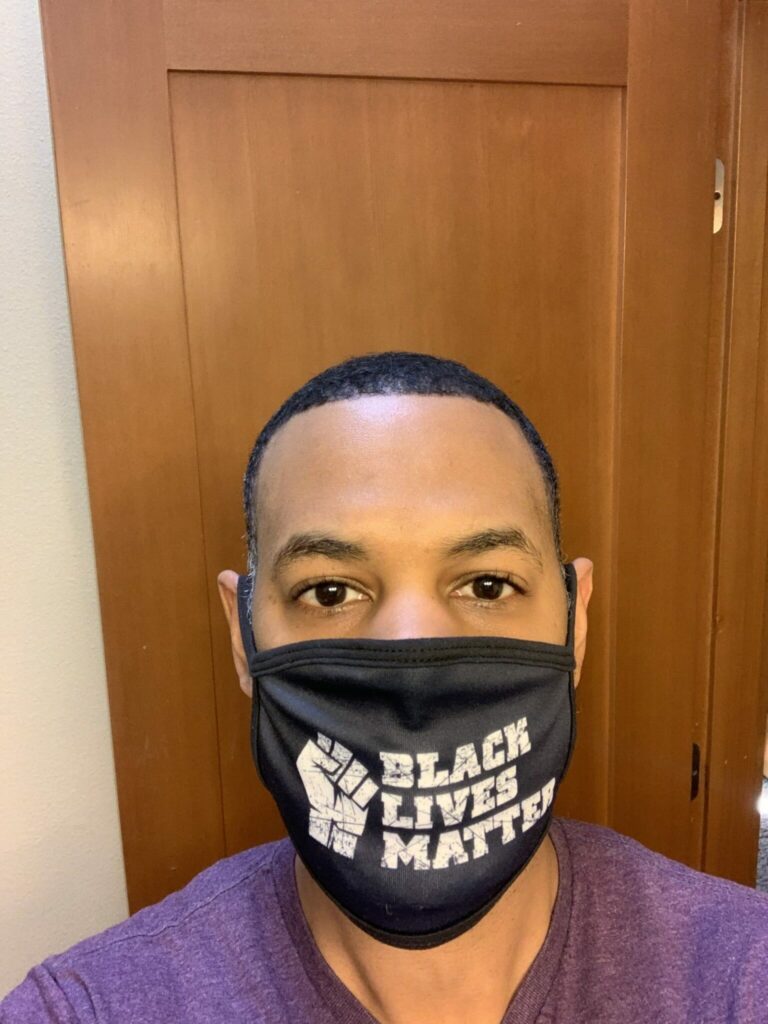My work in public health and disparities causes me to approach issues of health equity, cancer-health disparities, and other unconscious racial bias issues with personal experiences. I try to relate to patients, advocates, and other researchers. I was once part of that system that generates these inequities based on racism or certain biases in cancer care. For younger patients being subjected to those biases, it could lead to someone’s own personal outlook and mistrust of the medical system and its ability to treat them with quality care. I’m a firm believer that RACE is not a factor in our health outcomes, but RACISM is. This isn’t a lecture on the intricacies of systemic racism/bias in cancer care exactly, but maybe I can share something else.
Lived experience/anecdotal evidence is under-valued in my professional opinion. Don’t get me wrong, I love numbers, the science, the research, and everything in between. What really makes it real in my line of work is when someone shares their story with me. It gives my work purpose. What motivates me in being a health professional is to make meaningful change and connect the science/research to the communities. I identify as Black/African American and my work primarily is with African American populations/Communities of Color. I learn from stories of people who deal with their cancer experience, health, or other issues and these are all “too real” for me. They teach me a lesson both personally and professionally.
I was diagnosed with an extremely rare medical condition known as Atypical Hemolytic Uremic Syndrome (aHUS). Still deadly, but rare as in 1 in 500,000 cases in the U.S. My kidneys were failing, and my blood cells were being attacked by my own body. Physicians had no clue what was going on with me (2 biopsies ensued). Doctors have told me that I run a higher risk of kidney cancer and others say it’s a completely different risk. Two weeks in the hospital and I was told I was near death as each day my kidneys would drop to less than 3% function.
If you’re unfamiliar with plasmapheresis, they remove blood plasma from the body, draw blood, separating plasma and cells, then transfuse the cells back into my body. I HATED this treatment. I HATED dialysis too. When I was forced to undergo this, it was an extremely cold and uncomfortable feeling. My body would simply vibrate to the point where there was a shivering sensation that almost caused my very bones to shake and my teeth to chatter. In one situation, I remember that feeling of simply being left on a bed, in a room they had to take me, starting the machine and walking away. Just myself, a shivering body, in a cold lonely room. I often felt that some of the White nurses were never there for me like they were for “other” patients. Their “bedside manner” was completely different. On top of the struggle, I experienced the feeling of not being valued and felt not only the chill of plasmapheresis, but the same chill of what I considered to be implicit racial bias. The whole process was something that I would almost be willing to accept death over instead of experiencing.
ENTER doctors explaining to me that they must get hold of new medication of immunotherapy therapy that I have to take to SURVIVE. There is only ONE medication approved in the whole wide world that is approved for my condition. I was informed that I’d be faced with the reality that I’d need to take this chemotherapy every two weeks. EVERY TWO WEEKS. Imagine your reaction if someone told you that you needed dialysis every other day, and chemo every two weeks in order to live? Suppose you miss a treatment? Every two weeks for the past 3 years I was reminded how I’m sick. Recently, a new therapy came out and now I’m merely reminded every 8 weeks instead. I cannot escape the fact that I’m still “poked & prodded” for blood and tests. Does this sound familiar to any cancer patients out there?
My own experiences have caused me to witness not only the glaring issues that exist in health equity, unconscious racial bias, medical gaslighting, or the MULTITUDE of things that we could improve in our health system, but also what motivates me to do my job is that there are SO MANY people who undergo similar experiences. So many who are also Black, Indigenous, People of Color (BIPOC) who not only undergo this experience but are placed at disadvantages as a result of differences in their care or certain biases.
This is something I fully understand. It’s important to acknowledge these situations, do the research, and put in the effort it takes to address health inequities. I’ve been there. While I’m reminded every 8 weeks that I’m very sick, those who suffer from cancer are reminded every day. Your stories are important to me, they are important to my work, and they add levels of urgency that the rest of us need to understand.
I once met a 12-year-old Black girl and as I was seated next to her in therapy—I barely remember why she was there—but one thing that stuck with me was that she looked extremely sick, but it didn’t faze her. While hooked up to machines, her biggest concern was arguing with her mother about the brand new “Audi” she was going to get whenever she got her license one day. She just knew she was going to beat her cancer! I thought: “this is the attitude I need.” For one thing: I wanted an “Audi” too! The other thing is, Advocacy is extremely important. That’s one of the reasons I’m in public health/research. It will continue to drive me.
By Danté Morehead

